Contents
A good harvest of any crop begins with seeds. Tomatoes are no exception. Gardeners with experience have long compiled a list of favorite varieties and plant them year after year. There are enthusiasts who try something new every year, choosing for themselves the very tasty, productive and unpretentious tomato. There are a lot of varieties of this culture. Only in the State Register of Breeding Achievements there are more than a thousand of them, and there are also amateur varieties that have not been tested, but are distinguished by excellent taste and excellent yield.
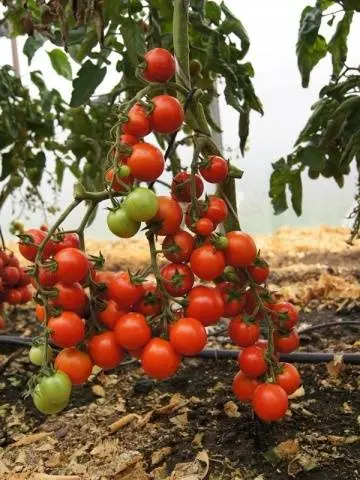
Varieties or hybrids – which is better
Tomatoes, like no other culture, are famous for their diversity. What fruits you will not find among them! And the bushes themselves are very different in type of growth, ripening time and yield. This diversity gives room for selection. And the ability to create hybrids that combine the best properties of both parents and have great vitality allowed breeders to reach a new level.
Advantages of hybrids
- great vitality, their seedlings are ready for planting faster, plants develop faster in open ground and greenhouses, all bushes are leveled, well leafy;
- hybrids perfectly adapt to any growing conditions, tolerate temperature extremes, heat and drought, and are stress-resistant;
- fruits in hybrids are of the same size and shape, most of them are suitable for machine harvesting;
- hybrid tomatoes are perfectly transported and have a good presentation.
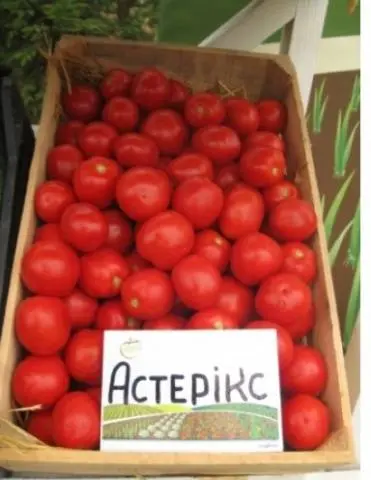
Foreign farmers have long mastered the best hybrid varieties and plant only them. For many of our gardeners and farmers, tomato hybrids are not so popular. There are several reasons for this:
- hybrid tomato seeds are not cheap; obtaining hybrids is an operation that requires a lot of labor, since the whole process is carried out manually;
- the inability to collect seeds from hybrids for planting next year, and the point is not that they are not there: plants from the collected seeds will not repeat the signs of the hybrid and will give a meager harvest;
- the taste of hybrids often loses to that of varieties.
The first hybrid tomatoes, indeed, differed in taste from varieties for the worse. But the selection does not stand still. The latest generation of hybrids corrects the situation. Many of them, without losing all the advantages of hybrid varieties, have become much tastier. Such is the hybrid Asterix f1 of the Swiss company Syngenta, which ranks 3rd in the world among seed companies. The breeding of the Asterix f1 hybrid was carried out by its branch located in Holland. To understand all the advantages of this hybrid tomato, we will give it a full description and characteristics, look at the photo and read consumer reviews about it.
Description and characteristics of the hybrid
Asterix f1 tomato was included in the State Register of Breeding Achievements in 2008. The hybrid is zoned in the North Caucasus region.
Tomato Asterix f1 is intended for farmers, as it is well suited for commercial production. But for growing in the garden, Asterix f1 is also quite suitable. In the northern regions, its yield potential will be fully revealed only in greenhouses and greenhouses.
In terms of maturation, the hybrid Asterix f1 belongs to the middle early. When sown in open ground, the first fruits are harvested already 100 days after germination. This is possible in the southern regions – where it is supposed to grow. To the north you can not do without growing seedlings. From its landing to the first fruits, you will have to wait about 70 days.
Asterix f1 refers to determinant tomatoes. The plant is powerful, well leafy. Fruit covered with leaves will not suffer from sunburn. Landing scheme – 50x50cm, i.e. per 1 sq. m will fit 4 plants. In the south, the Asterix f1 tomato grows in open ground, in other regions closed ground is preferable.
The hybrid Asterix f1 has a very high potential yield. With good care from 1 square. m plantings you can get up to 10 kg of tomatoes. Harvest gives together.
The fruits of the hybrid Asterix f1 are not very large – from 60 to 80 g, beautiful, oval-cubic shape. There are only three seed chambers, there are few seeds in them. The fruits of the hybrid Asterix f1 have a rich red color and there is no white spot at the stem. Tomatoes are very dense, with a dry matter content of up to 6,5%, so they produce high-quality tomato paste. They are perfectly preserved – the dense skin does not crack and retains the shape of the fruit well in jars.
The high vitality of the heterotic hybrid Asterix f1 gave it resistance to many viral and bacterial diseases of tomatoes: bacteriosis, fusarium and verticillium wilt. The gall nematode does not affect it either.
Hybrid Asterix f1 adapts well to any growing conditions, but will show maximum yield with good care. This tomato tolerates high temperatures and lack of moisture without problems, especially if sown directly into the ground.
Hybrid Asterix f1 is perfect for farms.
To get the maximum yield of Asterix f1 tomatoes, you need to know how to properly grow this hybrid.
Features of hybrid care
When sowing Asterix f1 tomato seeds in open ground, it is important to correctly determine the timing. Before the earth warms up to 15 degrees Celsius, it cannot be sown. Usually for the southern regions this is the end of April, the beginning of May.
To make it convenient to mechanize the care and harvesting of tomatoes, it is sown in ribbons: 90×50 cm, 100×40 cm or 180×30 cm, where the first number is the distance between the ribbons, and the second is between the bushes in a row. Sowing with a distance between the tapes of 180 cm is preferable – more convenience for the passage of equipment, it is easier and cheaper to set up drip irrigation.
For an early harvest in the south and for planting in greenhouses and greenhouses in the north, seedlings of the Asterix f1 hybrid are grown.
How to grow seedlings
The know-how of Syngenta is the pre-sowing treatment of seeds with the help of special disinfectants and stimulants. They are completely ready for sowing and do not even require soaking. When compared with the control group, seedlings of Syngenta’s tomato seeds appeared to be stronger, they sprouted a few days earlier.
Under these conditions, the seeds are guaranteed to remain viable for 22 months.
Asterix f1 tomato seedlings should develop at an air temperature of 19 degrees during the day and 17 at night.
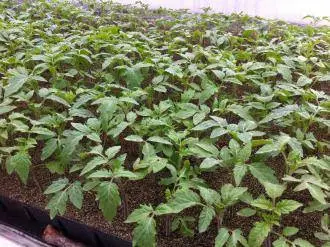
In farms, germination chambers are used for this; in personal farms, a container with seeds is placed in a plastic bag and kept in a warm place.
As soon as the Asterix f1 tomato seedlings have 2 true leaves, they dive into separate cassettes. The first few days, the pickled seedlings shade from the sun. When growing seedlings, an important point is proper lighting. If it is not enough, the seedlings are illuminated with special lamps.
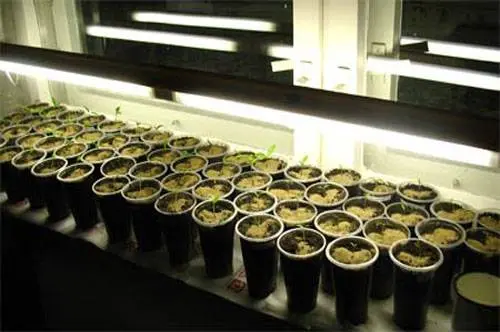
Asterix f1 tomato seedlings are ready for planting in 35 days. In the south, it is planted at the end of April, in the middle lane and to the north – the timing of the landing depends on the weather.
Further Care
A good harvest of Asterix f1 tomatoes can only be obtained with drip irrigation, which is combined every 10 days with top dressing with a complete complex fertilizer containing trace elements. Asterix f1 tomatoes are especially in need of calcium, boron and iodine. At the first stage of development, tomatoes need more phosphorus and potassium, as the bush grows, the need for nitrogen increases, and more potassium is needed before fruiting.
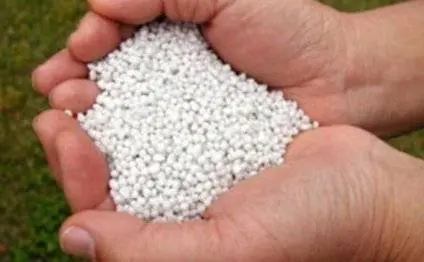
Asterix f1 tomato plants are formed and the leaves under the formed brushes are removed only in the middle lane and to the north. In these regions, the Asterix f1 hybrid is led into 2 stems, leaving a stepson under the first flower brush. There should be no more than 7 brushes on the plant, the rest of the shoots are pinched 2-3 leaves from the last brush. With this formation, most of the crop will ripen on the bush.
Growing tomatoes in all details is shown in the video:
The Asterix f1 hybrid is an excellent choice for both farmers and amateur gardeners. The effort put into caring for this tomato will ensure a large harvest of fruit with good taste and versatile use.









